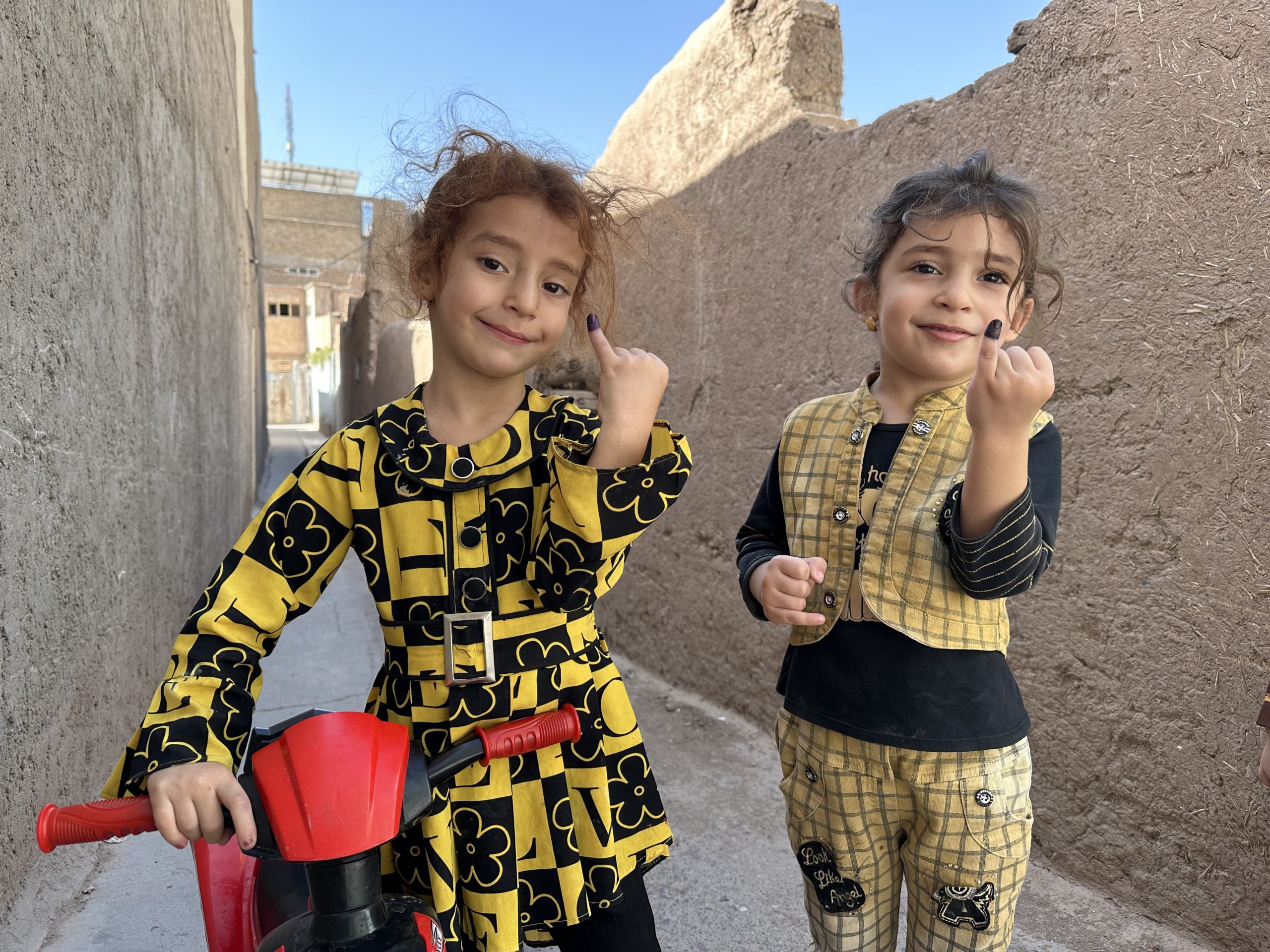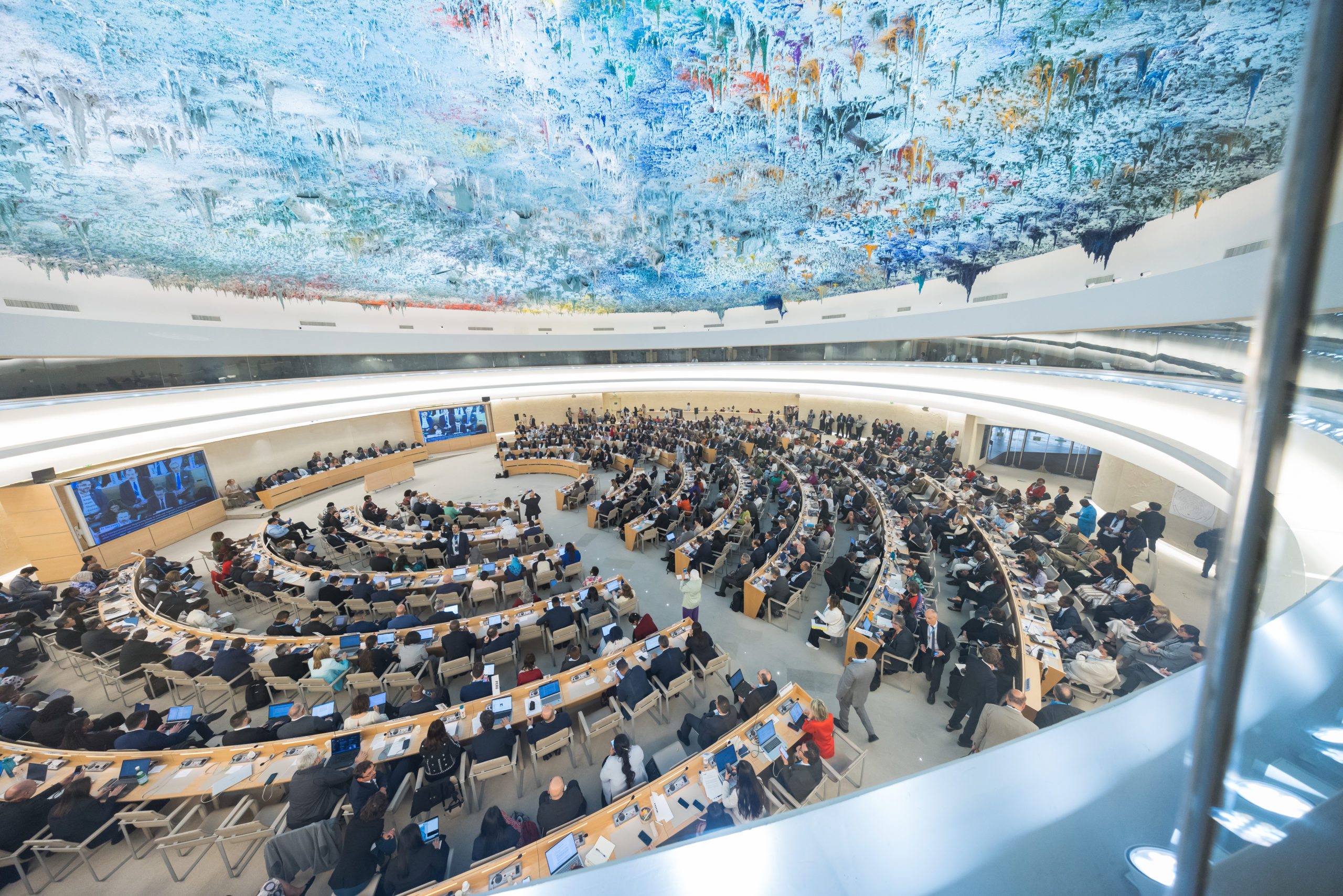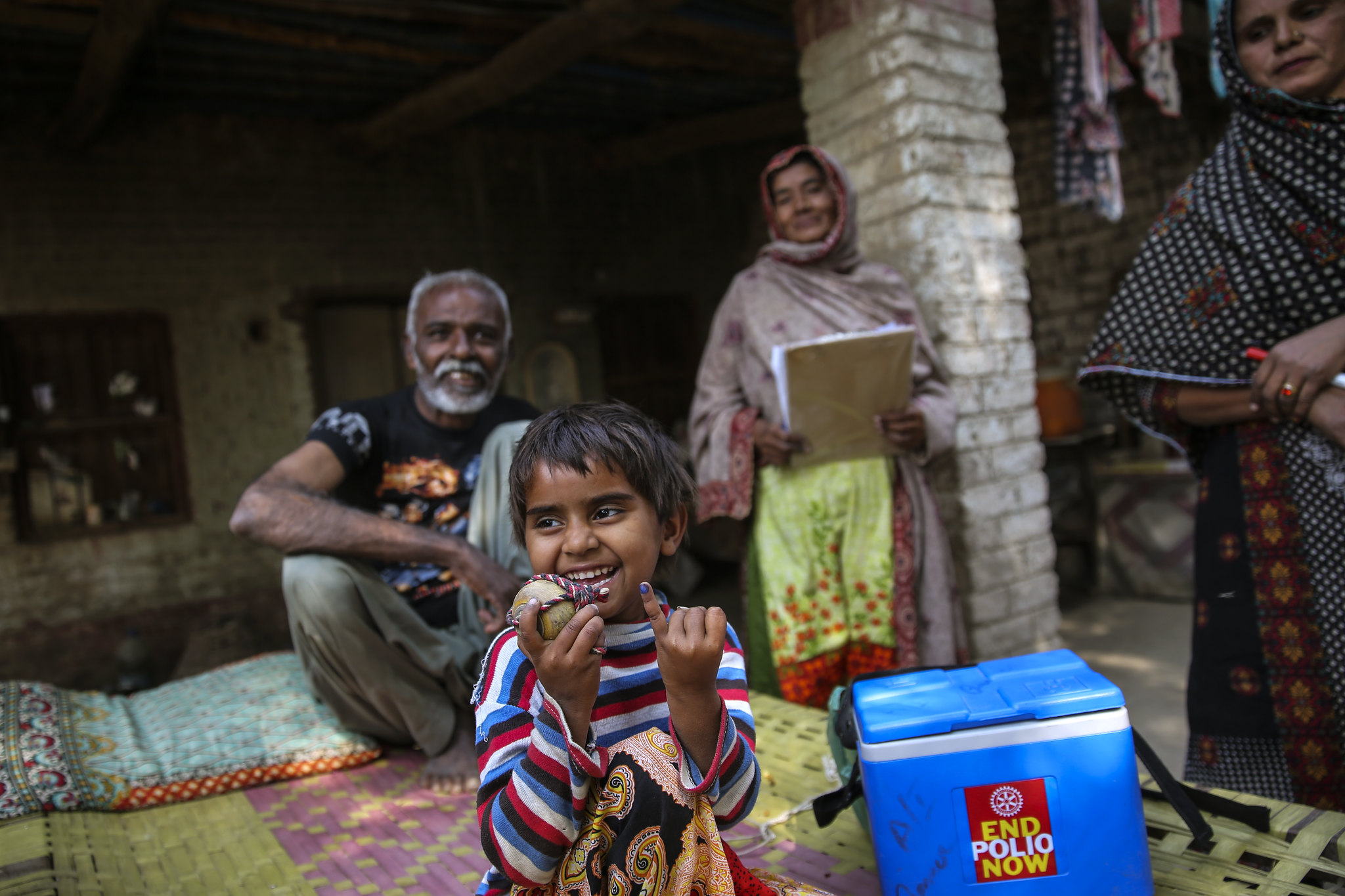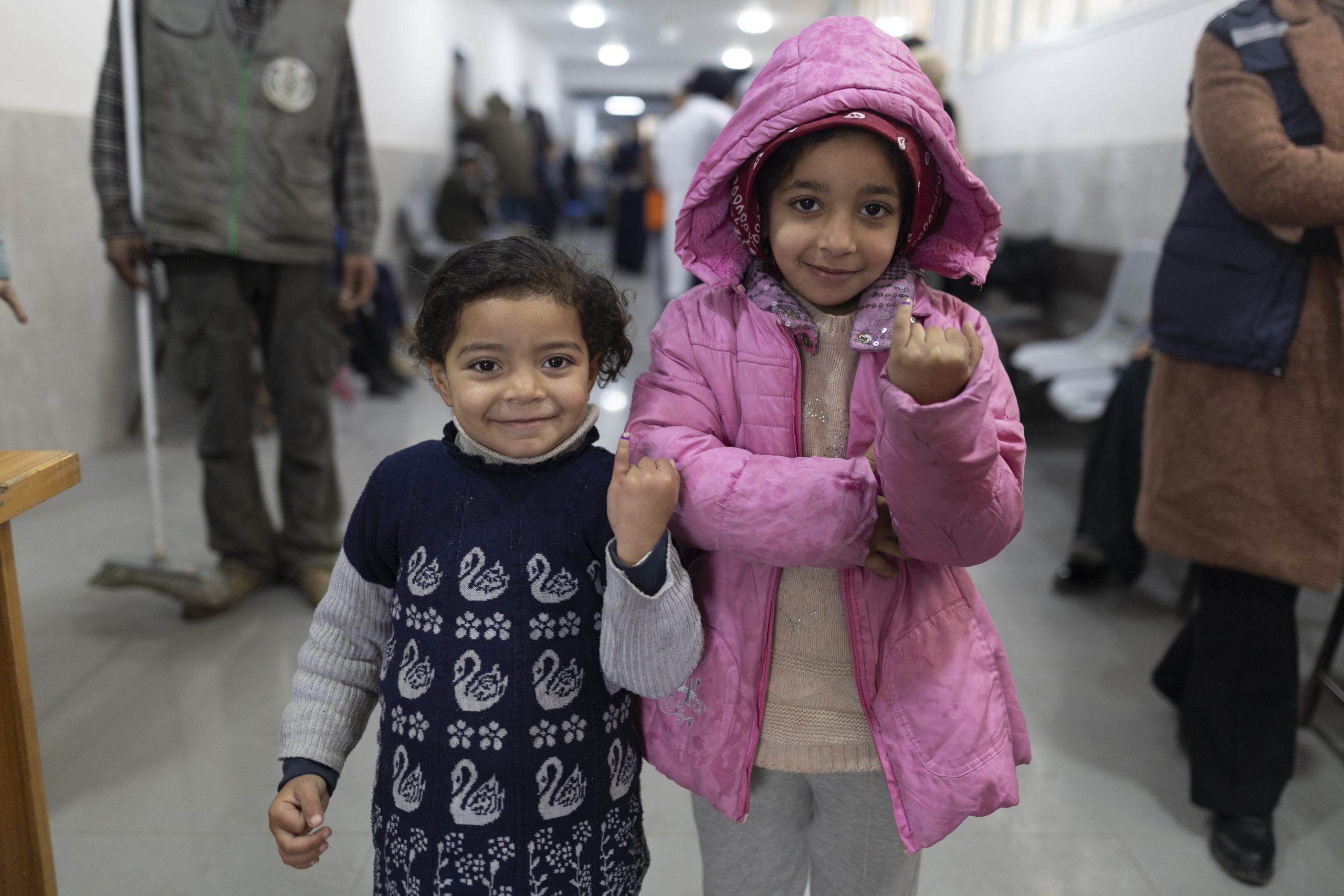It was a somber day when Ihsanullah was told that two of his youngest children will never be able to walk again. His two year old daughter Safia, and Masood, his five month old son, were both diagnosed with polio.
When they began running a high fever in December, Ihsanullah rushed them to the nearest hospital in the city of Tank, Pakistan. After a series of tests, doctors confirmed that both children had contracted polio. Further investigations revealed that neither child had been vaccinated during any previous routine immunization or polio campaign rounds.
Like many other parents in his village, Ihsanullah had never accepted the polio vaccine. “I had a negative opinion about vaccination from the start. Many people told me that the polio vaccine was made of haram[forbidden] ingredients and was part of a larger conspiracy to make Muslim children sterile,” he said.
A farmer and labourer by profession, 27-year-old Ihsanullah lives in a village named Latti Kallay in Khyber Pakthunkwa, Pakistan. Polio teams often face hesitancy from communities in Latti Kallay during campaign rounds, with many parents citing religion as the primary reason for refusing the polio vaccine. In Tank city and the immediate surrounding areas, six wild polio virus cases were reported in 2019.
Sadly, it sometimes takes a case of polio for communities to fully realize the importance of vaccinating their children. Asghar and Khadim, neighbours of Ihsanullah, told polio teams that they had started ensuring that their children are vaccinated, despite being staunch refusers of the vaccine previously.
Ihsanullah said, “It pains me to imagine that Safia and Masood will never be able to walk again. If I knew that this would be the outcome, I would never have stopped the polio teams from vaccinating my children. I deeply regret my decision, but I will make sure that my other children are vaccinated”.
For now, the COVID-19 pandemic has necessitated the temporary pause of polio vaccination campaigns. This leaves unvaccinated children who cannot access routine immunization services vulnerable to paralysis. The situation also underlines the vital importance of increasing trust in vaccines amongst parents, so their children are protected from polio no matter what happens.
Gohar Mumtaz, the Union Council Polio Officer of the district, has hope. He says that a routine immunization session with the community, conducted before the pandemic spread to Pakistan, seemed to be more popular than usual. “Although there is still hesitancy, the situation seems to be improving. People will understand the need to vaccinate and no child will suffer like Safia and Masood in the future.”
To overcome barriers to polio eradication, the Pakistan polio programme conducted a top-to-bottom review during 2019. Areas where improvement is required were identified, and innovations introduced. This is vital work, as there are many other children in Pakistan besides Safia and Masood whose futures have been marred by the poliovirus. Last year saw increased transmission of the poliovirus across all provinces with a total of 147 wild cases reported.
The COVID-19 pandemic has added an additional hurdle to defeating polio in Pakistan. It is vital that the programme makes up for lost time as soon as it is safe to conduct house-to-house vaccination activities again. Whilst the pandemic is ongoing, the programme continues to build trust with communities by providing information about COVID-19 as well as the poliovirus. Where routine immunization continues in health centres, polio personnel are emphasizing the importance of maintaining children’s vaccination schedules as far as possible.
In a time when our health feels especially precious, Ihsanullah, Safia and Masood’s story serves to remind us why vaccination is so important.



